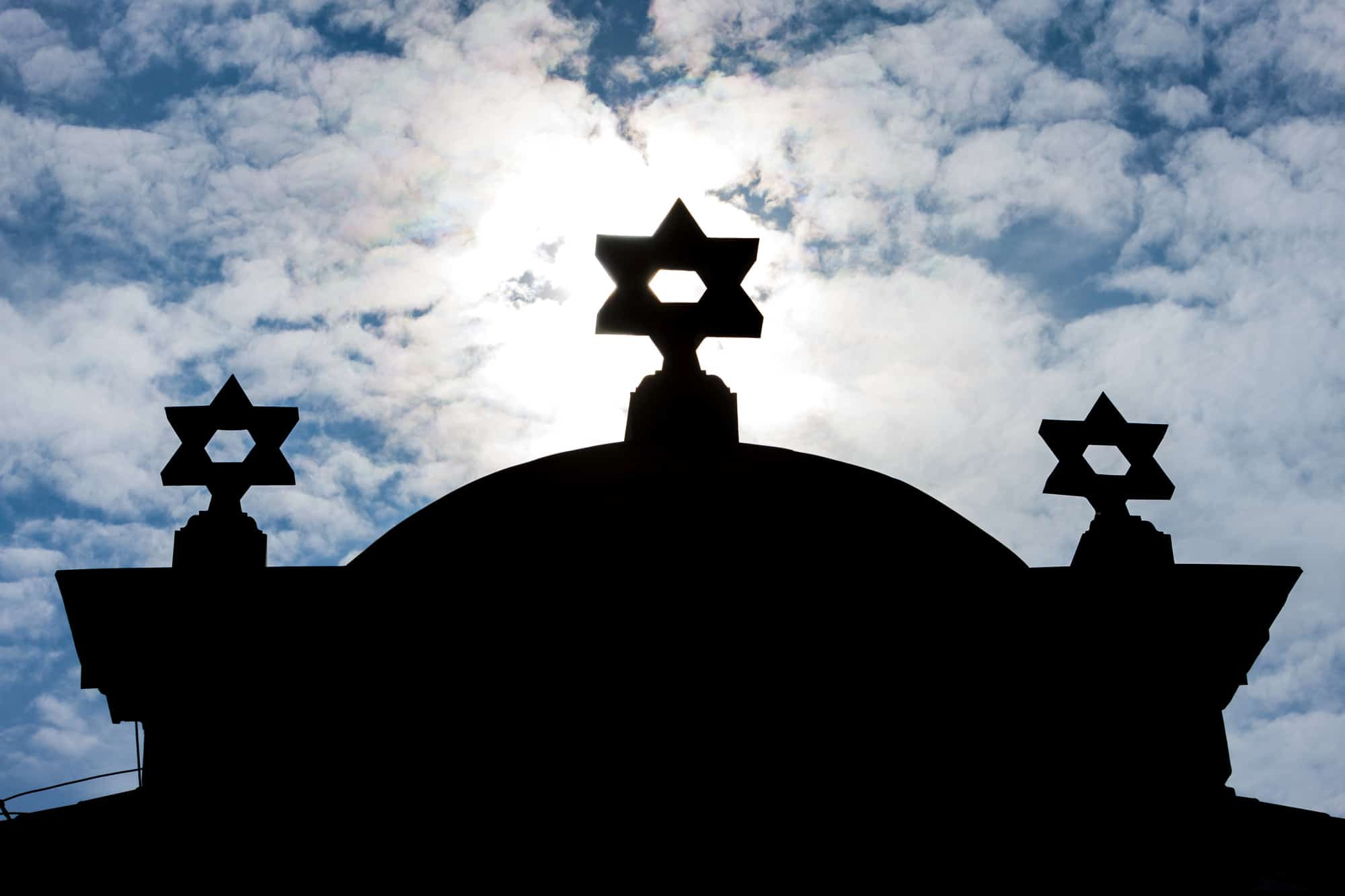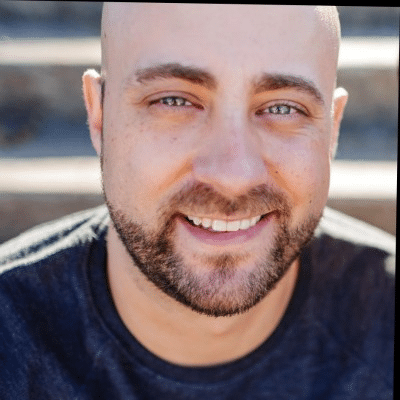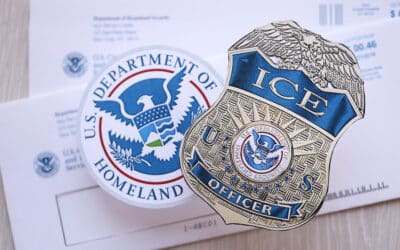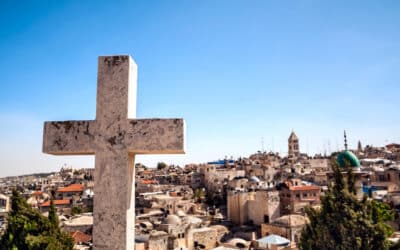“I wear two hats, one representing the people of Israel, the other representing the Jewish people around the world.” These are the words I was instructed to write into more remarks than I can remember over my eight and a half years working as the Strategic Outreach Director for the Consulate General of Israel to the Southwest United States. Carefully consider the gravity of that statement. The more time I spent conducting interfaith outreach efforts for the Israeli government, the more confused I felt about Judaism as a religion, its nature as an ethnic identity, how the contemporary state of Israel relates to both of these concepts, how antisemitism relates to these religious and ethnic paradigms, and the debates within Jewish communities surrounding all of these questions.
There was an old saying I became familiar with when working at the Consulate: “Two Jews, three opinions.” With this thought in mind, how then could one diplomat claim to speak for all of them? During my time there, I would interact with converts into Judaism, secular Jews, Messianic Jews, Ben-Gvir supporters, Marxists Jews, Patrilineal Jews, Jews of the Kibbutzim, Religious Settlers, American Jews, Israeli Jews, Orthodox/Conservative/Reform Jews, and Ashkenazi/Sephardic/Mizrahi/Ethiopian Jews. Navigating this landscape where belief, identity, and nationality were always colliding and often in tension was both challenging and fascinating.
I remember one Jewish convert who I grew particularly close to working at the Consulate. Being visibly Jewish, in the sense that he adorned a kippah, he was nervous about coming into the office during the war in Gaza and would opt to work from home on occasion. On one of these days when he was afraid to come in, I remember sitting at my desk and hearing one of the security guards saying, “This is ridiculous! He’s not even Jewish!” It would seem in the eyes of some that belief isn’t enough to be truly in the tribe or covered by the “hat” of Israeli diplomats. Blood was what counted.
In another instance, I received an alert message on the Consulate’s group text stating that one of the Houston synagogues was the target of a bomb threat. Not long after, we received an update from the Consul General saying that it was not a Jewish synagogue that had been targeted, but a Messianic one. It would seem in this instance that belief is what mattered and that her diplomatic “hat” did not extend to ethnically Jewish people who had come to believe in Jesus.
This religious vs ethnic dichotomy is not only an abstract philosophical question or something that only plays out informally in interpersonal relations between individuals. It has shaped history for centuries in profound ways that have seeped into the laws and policies of multiple countries. For centuries in Europe the powerful decreed that Christians were forbidden from charging interest on loans, while Jews were not permitted to own land; policies that would lead directly to a situation that bred religious hatred. Consider that during the Spanish Inquisition, Jews were forced to convert to Christianity or be forced into exile or worse as a result of senseless, theologically based Jew hatred. Now contrast this with the legal mechanisms of Nazi Germany, its allies, and countries it occupied. The reason anyone with at least one Jewish grandparent can freely emigrate to Israel (a policy I would regard as possessing commendable intentions) is because having one Jewish grandparent was enough to get a person murdered during the Holocaust, regardless of their religious affiliation. Many officials in Nazi-occupied Europe were onboard with persecuting religious Jews, but uncomfortable in condemning their fellow Christians to this fate.
This dynamic between ethnicity and religion did not end eighty years ago. Consider a policy passed just a few years ago I would regard as not so commendable: Israel’s Nation State Law. This policy states that “The right to exercise national self-determination in the State of Israel is unique to the Jewish people,” among other controversial clauses. Many observers argue that this law calls into questions the concept of equality in Israel. In light of this law, what does it mean to be a Musim or Christian Israeli? What does the Israeli government’s cultivation of Christian Zionism in America, that was analyzed in my previous article, mean in relation to this law?
(I should mention that in courting Christian Zionists, it was not always clear who was leading whom. When talking about Pastor Carlos Ortiz, leader of the International Fellowship of Christians and Jews, organizing her speaking at the Sunday services of multiple Spanish speaking churches in Houston, Consul General Livia Link-Raviv once remarked, “I felt like he was pimping me out.”)
I would contend we ought to think carefully before enacting similar policies in this country, such as laws demanding the conspicuous posting of religious text in public school classrooms or seven state constitutions, including Texas, baring non-believers from holding public office.
I digress; boy wonder Ben Shapiro has long maintained that he is imbued with the gift to be able to discern good and bad Jews or real and fake Jews from one another, usually on the basis of their religious devotion and the degree to which they support the actions of the Israeli government. It would seem to Mr. Shapiro that religious and political belief is what is important for the hat to fit.
Some influential leaders argue that patrilineal Jews, those whose Jewish ancestry comes from their father rather than mother, are not actually Jews. As you can imagine, many Jewish people find this notion extremely offensive. I helped organize a meeting between Consul General Gilad Katz and many prominent DFW Rabbis with the Jewish Federation of Greater Dallas. Because I did not accompany him on this trip, I did a follow-up call to check how the meeting went with a Federation leader. I was told it did not go well and that “he did not endear himself well with the Rabbis.” I asked what happened and was told that Consul General Katz used the slur “Goyim” to refer to patrilineal Jews. Gilad had told me he thought the meeting went well. In this instance it would appear that blood matters, but that it needs to be from a specific side of one’s family. Perhaps Jonathan Greenblatt, leader of Anti-Defamation League (ADL), feels similarly given his recent remarks on endogamy. I thought we settled this issue long ago with Loving v. Virginia.
Many Americans are shocked to learn that interfaith marriage remains unlawful in Israel in the twenty-first century. Israel might be among the least repressive countries in the Middle East, but it would seem it has a long way to go before its citizens can truly say they live in a free society where the state isn’t dictating archaic and dehumanizing rules regarding something so fundamental to the human experience as the right to love.
These debates within Jewish communities grew considerably more intense following October 7 and the Gaza War. It did not take long before the advocacy group Jewish Voice for Peace started complicating narratives from Tel Aviv by contending this government does not speak for them in its war conduct. In navigating the debate of when anti-Zionism becomes antisemitism, some leaders were insistent that JVP exists to “make antisemitism Kosher.” It would seem there are many Jews who do not wish to be included under the “hat” of Israeli diplomats.
Eventually, this sentiment became more widespread, though not always in public. I remember one staff meeting many months into the war, when Consul General Livia Link-Raviv told us that we were not to repeat this, but there were several prominent members of Houston’s Jewish communities who had told her in confidence they wanted to maintain their public support for Israel, but that Israel’s wartime conduct and rhetoric was making it difficult for them to do so. However, we would still insist in remarks that she spoke for them.
I want to reiterate that I unequivocally condemn all acts of political violence against civilians in the United States and elsewhere pertaining to this conflict. Far too much blood has already been spilled in the name of justice or vengeance targeting innocent Jewish or Arab Americans among others, from demonstrators being engulfed in flames in Colorado to a Palestinian-American boy being stabbed to death in Illinois. We have seen Palestinian students shot in Vermont, the spouse of an embassy employee stabbed in China, a Molotov cocktail thrown at a synagogue in Germany, and multiple instances of self-immolation at diplomatic installations across the U.S.
While I was still working at the Consulate, we had to cancel multiple events due to bomb and arson threats, “globalize the Intifada (a serious of events in which thousands of people were murdered)” was written in blood red paint on the walls of the building where I worked, and a man named Anas Said swore his allegiance to ISIS and was actively planning to attack the Consulate among other sites before his plans were foiled by the FBI. These types of experiences are not fun, and I would not wish them upon anyone. If you find these appalling actions appealing, I urge you to reconsider. To say nothing of the immorality of such attacks, engaging in or pledging one’s support to this type of behavior will not advance the cause you claim to support, and it will likely be used to disparage it. As Martin Luther King Jr. argued, your means will be understood as your ends. “Free Palestine” should be a call for a peaceful future, not a war cry.
But this phrase was used as a war cry following the brutal murder of two embassy staffers, Sarah Milgirm and Yaron Lischinsky, in Washington DC. Sarah was a Jewish-American woman who earned the same degree as I did from American University just a few years after I did. We may have even learned from some of the same professors. Perhaps there is a parallel universe where her killer’s attack was foiled by the FBI rather than Anas Said’s attack on the Houston Consulate. Perhaps she too is writing a similar article about me right now condemning my killer and this endless cycle of bloodshed. There was much confusion surrounding Yaron’s religious identity, but that did not stop people like Bari Weiss from suggesting that he was Jewish. Perhaps Christians or Messianic Jews killed as an attack on Israel become bonified Jewish in death, and thus better fit under the “hat” of Israeli diplomats. The couple was soon to be engaged before their lives were cut short. Maybe Jonathan Greenblatt views it as a silver lining that no blood mixing occurred.
I am getting sick and tired of watching this violence occur so regularly, and I have also grown tired of anyone who aims to speak for those killed. As we strive for a more perfect union, all people should be free to speak for themselves and all victims of this terror should receive the same degree of empathy regardless of their religious or ethnic identities.
































